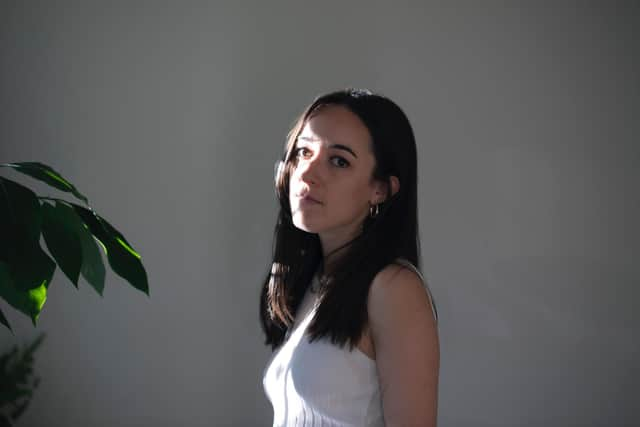Edinburgh International Festival preview: Catriona Price on the Orcadian inspirations behind her music
Catriona Price had to be away from Orkney to be able to write her remarkable debut solo album, Hert. The versatile fiddler, singer and composer currently lives in Glasgow, and her very contemporary sequence of music, inspired by her native islands’ writers and exploring themes of home, identity and environment, might have sounded very differently had she remained there, she reckons.
Hert – Orcadian Scots for “heart” – arose from a Celtic Connections “New Voices” commission and Price will perform the subsequent album with a nine-piece band at The Hub on 11 August.
Advertisement
Hide AdAdvertisement
Hide AdClassically trained as a violinist, she is also steeped in Orcadian fiddle music and is a member of the Orcadian folk band Fara, as well as half of the genre-defying duo Twelfth Day along with harpist Esther Swift – who also plays on the album and in the Festival concert. The ensemble also includes swing jazz violinist and singer Seonaid Aitken, cellist Alice Allen, pianist Tom Gibbs and drummer Owen Williams.
Traditional music Hert is not. The title track is a vivid aural collage based on a dialect poem by Kevin Cormack, evoking the rumbustious annual Kirkwall Ba’ Game. Elsewhere the dreamy vocal harmonies of Price, Swift and a third singer, Sarah Hayes of Admiral Fallow, deliver settings of George Mackay Brown’s poem Swans and Yvonne Gray’s Silence, while, in startling contrast, Aitken unleashes a rip-roaring swing setting of No Such Thing As Belonging, a bitter-sweet enquiry into the meaning of “home” by Harry Josephine Giles.
Composing the suite, Price, at 36, wanted to explore the changing meaning of “home” – “to delve into what my motherland of Orkney means to me now that I’m looking upon it with adult eyes. When I wrote Hert,” she continues, “I had been away for almost 15 years.”
She considers herself lucky to have been exposed early on to classical music, particularly choral, as much as traditional. Her father founded a choir in Kirkwall, while her fiddle teacher, Douglas Montgomery, as renowned as an educator as he is as a player with The Chair and Saltfish Forty, encouraged her to embrace classical as much as traditional.
Living in London and elsewhere, she absorbed other forms of music while meeting people from different walks of life, further broadening her mind: “Then coming back to the place that shaped you in the first place … that’s really a lovely thing. So the piece would probably have sounded really different if I’d never left Orkney.”


Price, then, was already unconstrained by genre by the time the initial idea for Hert came to her from a book, Orkney: Pictures & Poems, which combines poetry by George Mackay Brown with images by photographer Gunnie Moberg. She initially considered setting the Mackay Brown poems to music, “but by the time the commission came from Celtic Connections I had become really interested in people from different walks of life and society and the idea of only setting George’s poems felt like it would take only one perspective into account. I decided it would be an opportunity to dig about and see who else had been writing in Orkney and perhaps find voices that haven’t really had such a platform and the kind of characters you maybe wouldn’t think of within a small community on an island.”
Thus one instrumental is inspired by Venus as a Boy, which draws on author Luke Sutherland’s experience growing up mixed-race in the island community of South Ronaldsay. And that zesty swing number, No Such thing As Belonging, is based on lines by the writer Harry Josephine Giles who, among other things won the 2022 Arthur C Clarke award for science fiction with their Orcadian dialect verse novel Deep Wheel Orcadia.
Advertisement
Hide AdAdvertisement
Hide AdThe suite’s closing song is Price’s setting of If… not the old Rudyard Kipling rubric but Pam Beasant’s vision of islands inundated by climate change, though with an element of defiant resilience. Price muses on how beauty can come from such worrying scenarios: “I think it’s our important role as artists to draw attention to these things, and if we can do it with a nice tune or poem, it just might resonate with people.”
Catriona Price & Friends are at The Hub, 11 August. www.eif.co.uk